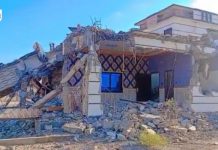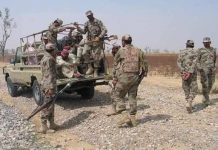The Baloch Students Council (BSC) Islamabad has condemned the inclusion of Baloch activists on Pakistan’s Fourth Schedule, describing it as an attempt to “legalise state barbarism” against the Baloch people.
In a statement, the BSC spokesperson said that placing the names of Baloch activists on the Fourth Schedule is a “matter of grave concern,” claiming that the move is part of a broader effort to “legitimise state oppression.”
The Fourth Schedule, part of Pakistan’s Anti-Terrorism Act, designates these individuals as “proscribed persons,” subjecting them to severe restrictions, including the freezing of bank accounts, passport denial, and bans on arms licenses and employment clearances.
According to reports, hundreds of Baloch—including human rights activists, professors, journalists, and students—have recently been added to the list. This follows the earlier inclusion of 20 prominent Baloch activists.
The BSC also criticised the federal government’s recent decision to grant military authorities the power to arrest individuals on suspicion and detain them for up to three months without trial.
The council and other critics, including students, activists, and civil society, described this move as an attempt to “justify enforced disappearances and other human rights violations legally by the state.”
The BSC highlighted a long-standing history of repression in Balochistan, referencing the “kill and dump” policy reportedly adopted in 2009. Under this policy, hundreds of activists were forcibly disappeared, and their bodies were later discovered in various locations across the region.
“For decades, Baloch have been deprived of peaceful activism for their rights,” the spokesperson said.
“In 2009, a ‘kill and dump’ policy was adopted through which hundreds of political, human rights, and student activists were forcibly disappeared. Later, their mutilated bodies were dumped in various parts of Balochistan, including those of Ghulam Mohammad Baloch, Sher Mohammad Baloch, Lala Muneer, Qamber Chakar, Ilyas Nizar, Sangat Sana, and Comrade Qayyum.”
The council further criticised the state’s use of extrajudicial killings through staged encounters, claiming that many forcibly disappeared individuals were later killed in “fake encounters” by the Counter Terrorism Department (CTD).
“Later, forcibly disappeared persons were killed in fake encounters by the Counter Terrorism Department to justify their killing,” the spokesperson added.
The BSC expressed concern that these recent developments represent a continuation of long-standing efforts by the state to harass activists, restrict their movements, and place them under surveillance. The council accused the government of attempting to justify these actions through legal measures.
“We have grave concerns over such decisions, which are a violation of human rights, as Balochistan has already faced human rights violations for decades,” the spokesperson said. “These decisions are an attempt to legalise state barbarism and suppress the masses and the human rights movement in Balochistan.”
The BSC concluded its statement by calling on national and international human rights organisations to take action. “We urge national and international human rights organisations to raise their voices and take immediate action against the manipulation of law to suppress the Baloch nation,” the spokesperson said.






























